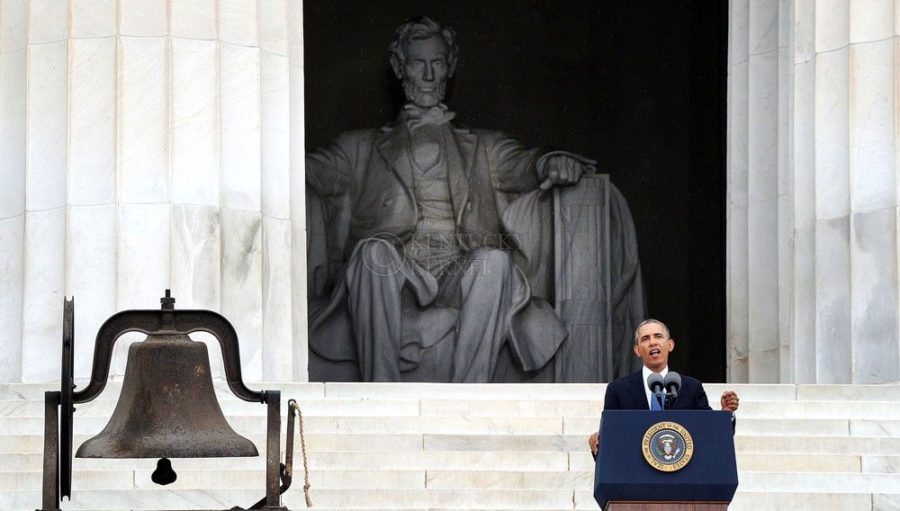UK marks March on Washington
August 29, 2013
By Melissa Patrick
Spurred by the famous “I Have a Dream” speech, the Martin Luther King, Jr. Center opened a dialogue Wednesday about diversity and change that it hopes will continue on UK’s campus.
A panel of scholars critiqued Martin Luther King Jr.’s “I Have a Dream” speech on the 50th anniversary of the activist’s March on Washington.
The four panelists from different UK colleges offered their opinions on the speech to students and faculty and opened the floor for discussion.
They agreed that the implications of King’s speech have increased with time and reflection.
Panelists were Chris Bollinger, economics professor; Arnold Farr, philosophy professor; Robert Schwemm, law professor; and Jeffrey VanCleave, communications professor.
VanCleave, a lecturer in instructional communications, suggested that although the speech was not perfectly executed, the momentum and energy King found by the impromptu end of the speech was equivalent to hitting a home run.
VanCleave also stressed the importance of the speech for teaching purposes.
Farr gave input on the importance of the speech and spoke about the context of its development.
King was from the south, was well-educated and a voracious reader, Farr said. King used these “lenses” to critique society, and Farr suggested that it is important to further critique King’s speech.
In addition, Bollinger touched on King’s desire for equal opportunities.
He discussed the economic impact that existed at the time of the original speech: 50 percent of African American’s lived in poverty and only 20 percent graduated from high school.
He also spoke about the direct relationship between increased education and decreased poverty.
Schwemm said King’s goal of creating laws to increase equality was achieved through the Civil Rights Act of 1964, the Voting Rights Act and the Fair Housing Act.
The U.S. went from “laws that prevented equal treatment, to laws that allowed equal treatment.”
He went on to say there is more work to be done and despite getting rid of the legal barriers, the economic issues prevail.
Farr said only “Phase I” of King’s dream has been completed.
Laws have changed, and now it is necessary to move on to “Phase II.”
This phase will require “total social transformation,” he said.
What has to happen to achieve King’s goal of “beloved community” will challenge everyone’s role in the community.
Among the questions raised by the audience were the gentrification of urban areas, inter-racial relationships, and the roles and responsibilities of the media.
































































































































































